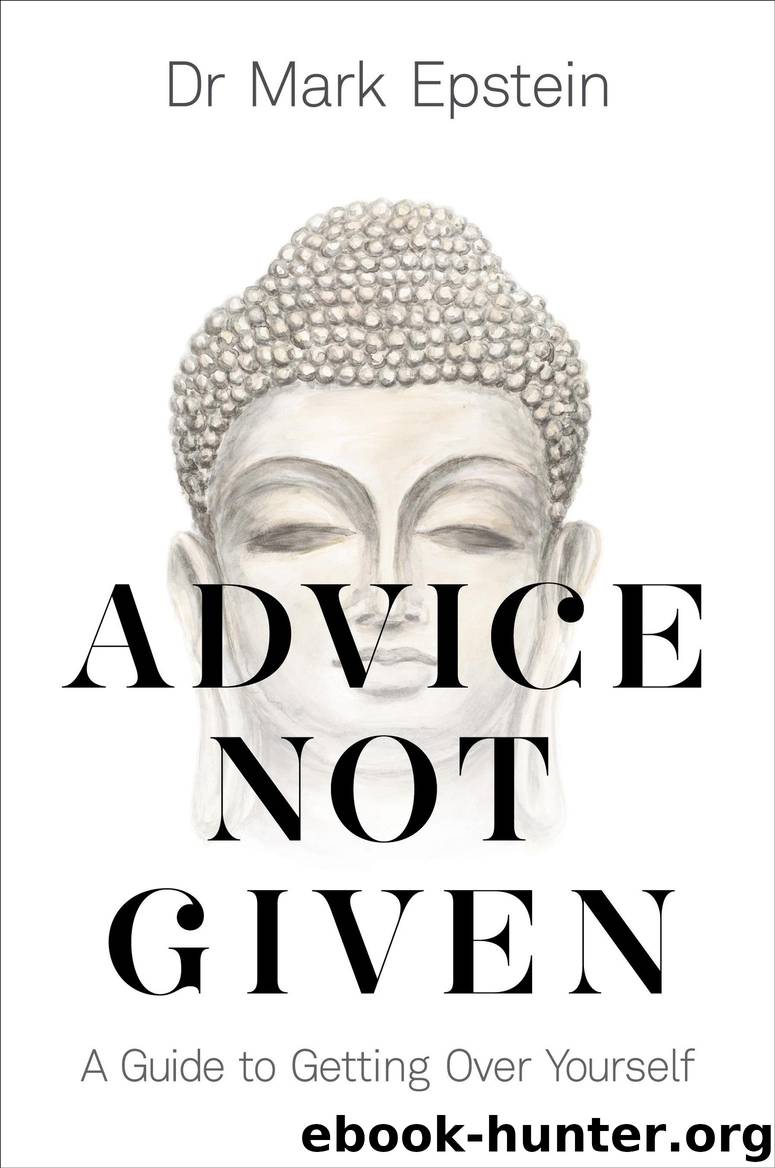Advice Not Given by Mark Epstein

Author:Mark Epstein
Language: eng
Format: epub
Publisher: Hay House
Published: 2018-01-16T05:00:00+00:00
Five
RIGHT LIVELIHOOD
Right Livelihood is the third of the ethical trilogy that began with Right Speech and Right Action. Classically, it means avoiding some of the worst qualities human beings are capable of: those involving deceit or exploitation. Examples from the Buddha’s time include trading in weapons, buying and selling human beings, killing animals, selling drugs or other intoxicants, and manufacturing or distributing poisons. As these ancient examples suggest, things have not changed very much. People still make great fortunes in the very industries the Buddha warned against, although there are a few modern variations, like the trade in subprime mortgages, he could never have envisaged. Right Livelihood, from its inception, has asked people to consider the ethics of how they make their money. As with Right Action, the original idea was to protect the Buddhist community from its own most corrupting impulses with an explicitly stated set of moral principles. As satisfying as it might be to make money at other people’s expense, the Buddha was sensitive to the covert cost to the mind. By introducing a clear set of moral precepts into the Eightfold Path, he was safeguarding his community from within and from without. His movement arose at a time of great mercantile expansion in South Asia when there was much money to be made. Right Livelihood suggested that this was a subject worth paying attention to.
In encouraging reflection on one’s vocation, Right Livelihood brings up a number of provocative questions. What place does work have in my life? What is driving me? Do I have ethical qualms about my job? Does my livelihood define me? Is my salary the most accurate reflection of my worth? The Buddha said that most people are motivated by what he called eight worldly concerns. Gain and loss, pleasure and pain, praise and blame, and fame and disgrace are the ones he specified. He was careful not to judge people for these preoccupations, although he cautioned that they all come and go. Despite their relative impermanence, many of them are referred to with the utmost respect in the Buddha’s ancient discourses. At one point the Buddha remarks that there are four kinds of happiness a householder should seek—“ownership, wealth, debtlessness and blamelessness”—and at another time he says there are five things which are “very desirable but hard to obtain: long life, beauty, happiness, glory and a good condition of rebirths.” The Buddha was realistic about human nature and he understood that most of us subscribe, consciously or unconsciously, to a set of default explanations for why we do what we do. The most prominent of these, when it comes to one’s livelihood, is money.
Money is not something that people talk about easily in therapy and it is not a subject I ordinarily offer advice about. People are much more comfortable, in these post-Victorian times, talking about sex than about money. They guard the details of their finances more religiously than their erotic fantasies. In my training as a psychiatrist, I was taught
Download
This site does not store any files on its server. We only index and link to content provided by other sites. Please contact the content providers to delete copyright contents if any and email us, we'll remove relevant links or contents immediately.
| Administration & Medicine Economics | Allied Health Professions |
| Basic Sciences | Dentistry |
| History | Medical Informatics |
| Medicine | Nursing |
| Pharmacology | Psychology |
| Research | Veterinary Medicine |
The Art of Thinking Clearly by Rolf Dobelli(9811)
The 5 Love Languages: The Secret to Love That Lasts by Gary Chapman(9172)
Mindhunter: Inside the FBI's Elite Serial Crime Unit by John E. Douglas & Mark Olshaker(8649)
Becoming Supernatural by Dr. Joe Dispenza(7793)
The Road Less Traveled by M. Scott Peck(7232)
Nudge - Improving Decisions about Health, Wealth, and Happiness by Thaler Sunstein(7191)
Mastermind: How to Think Like Sherlock Holmes by Maria Konnikova(6895)
Enlightenment Now: The Case for Reason, Science, Humanism, and Progress by Steven Pinker(6844)
Win Bigly by Scott Adams(6788)
The Way of Zen by Alan W. Watts(6255)
Factfulness: Ten Reasons We're Wrong About the World – and Why Things Are Better Than You Think by Hans Rosling(4455)
The State of Affairs by Esther Perel(4446)
Gerald's Game by Stephen King(4343)
Man's Search for Meaning by Viktor Frankl(4205)
The Confidence Code by Katty Kay(3994)
Thinking in Bets by Annie Duke(3970)
The Worm at the Core by Sheldon Solomon(3293)
Hidden Persuasion: 33 psychological influence techniques in advertising by Marc Andrews & Matthijs van Leeuwen & Rick van Baaren(3267)
Enlightenment Now by Steven Pinker(3252)
